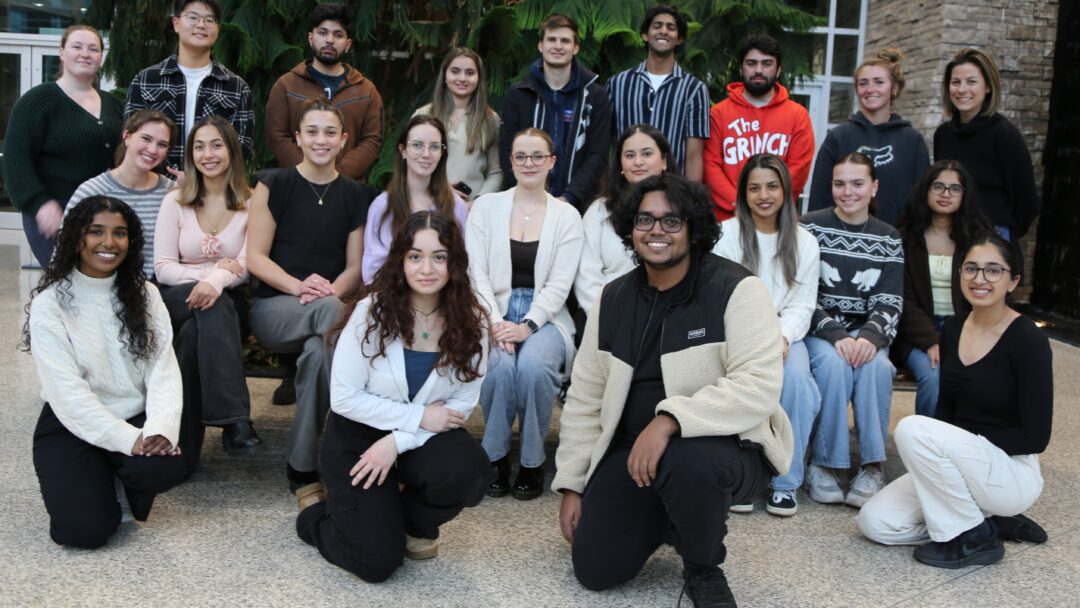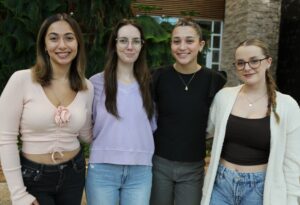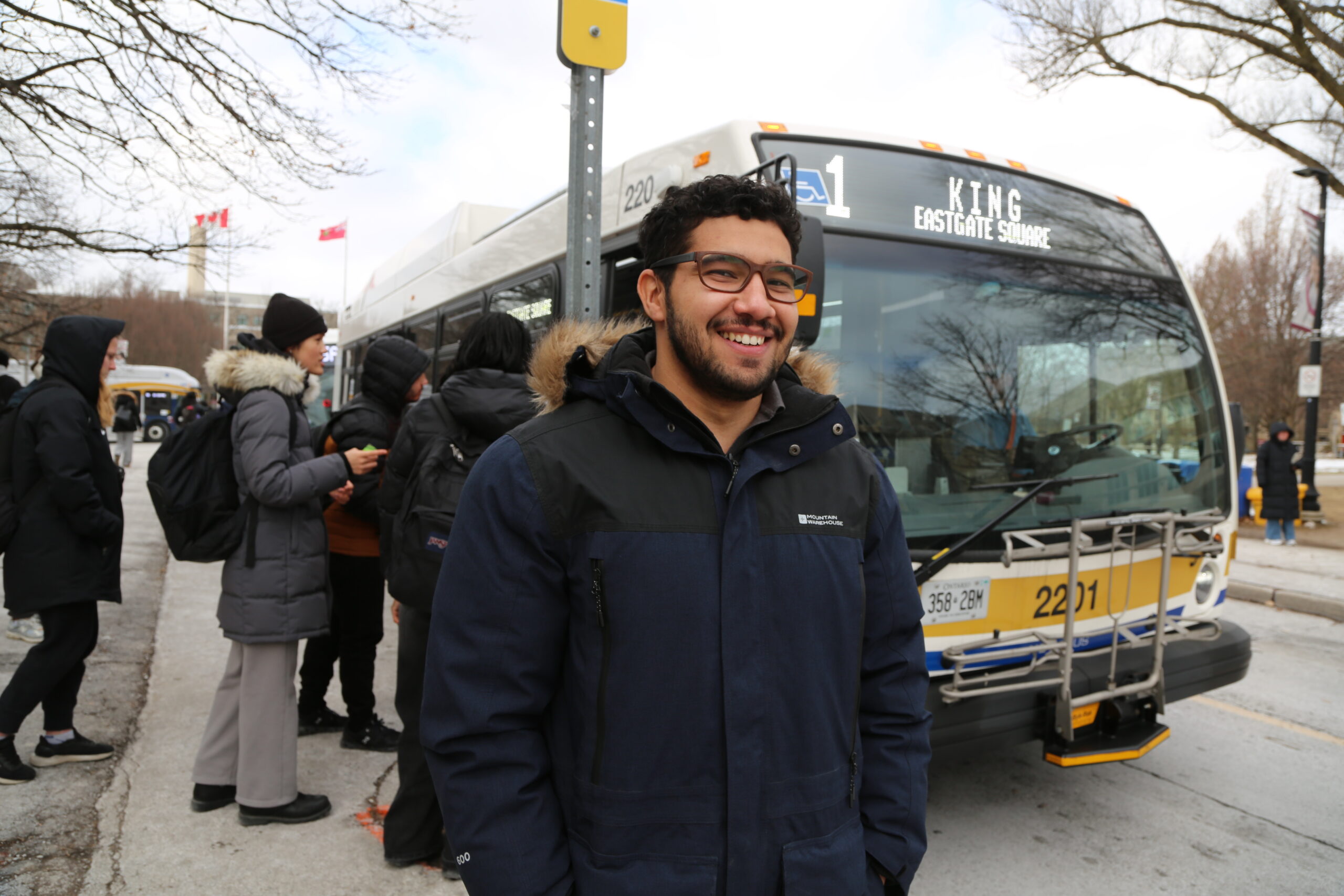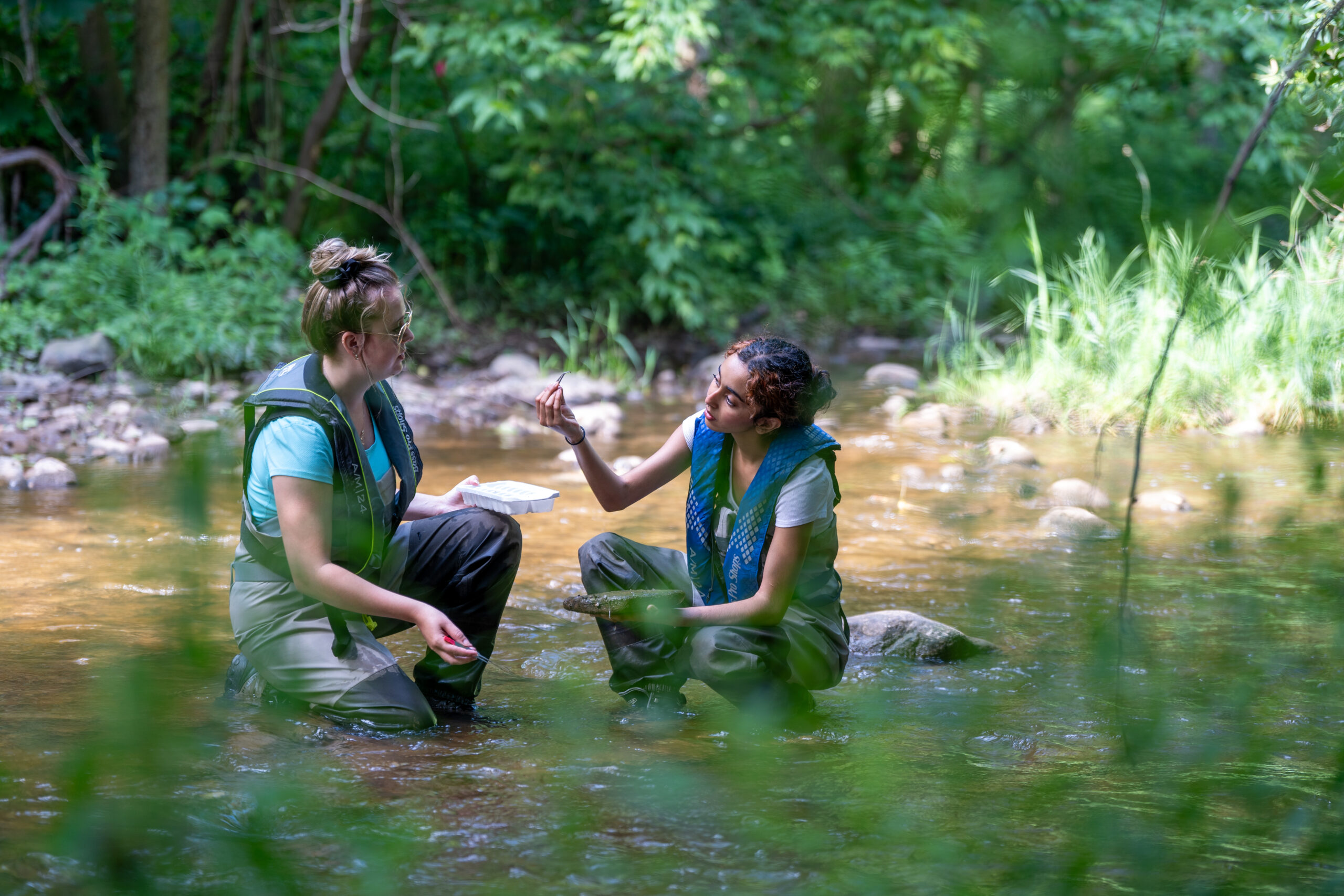To understand it, teach it – students take nutrition science course on the road

The spinach and avocado smoothies went from miss to hit in under 45 minutes.
The bright-green and brain-healthy snack was waiting for seniors as they showed up for a workshop run by students in Janet Pritchard’s advanced nutrition seminar.
The smoothie had initially been a hard sell, says fourth-year Life Sciences student Macy Malysiak. “Some of the participants were hesitant and took a pass. But by the end of our workshop, they not only tried the smoothie – they loved how it tasted and said they’d add similar recipes into their daily routines.”
Macy and 27 other students took everything they learned in Janet’s course and hit the road, delivering nutrition science workshops at the Ancaster Senior Achievement Centre, Sackville Hill Senior’s Centre, Stoney Creek Recreation Centre and on campus at the Physical Activity Centre of Excellence (PACE).

Working off the premise that the best way for students to understand nutrition science is to teach it, Janet introduced the workshops in 2017. It would be a way for students to apply what they’d learned in the classroom and develop their communication skills while at the same time helping older adults in the community change their behaviors and adopt new eating habits.
That change is important – Statistics Canada says one in five Canadians are 65 years of age or older. An estimated one-third of older adults are at risk of nutritional deficiencies and hospitalization, with serious impacts on health care budgets. They need specific and practical guidance on how to modify their diets to help reduce the risk of developing age-related diseases such as osteoporosis, sarcopenia, Alzheimer’s and cardiovascular disease. The Academy of Nutrition and Dietetics, the American Society for Nutrition and the Society for Nutrition Education have all recommended that older adults have access to nutrition education.
Students were divided into teams and assigned different topics, from gut health to brain health. Each team worked with a $25 budget for healthy snacks – chips and cookies were out, smoothies and cream cheese salmon balls were in. The teams started building their workshops early in the fall term with just one hard and fast rule from Janet. Their 45-minute workshops had to be PowerPoint-free – students would stand and deliver without the safety net of a slide deck.
“Anyone can put together a bunch of slides and read bullet points off a screen,” says Janet, an assistant professor in the School of Interdisciplinary Science. “I want students to think about how to teach, how to set clear learning objectives and how to create engaging activities.” Along with delivering important and relevant information, Janet asked students to incorporate behavior change theory into their workshops. “In undergraduate programs, we teach a lot of scientific concepts but miss the mark on teaching students about human behaviour change,” says Janet. The participants sipping on their spinach and avocado smoothies was proof that behaviors changed during the workshop.
The time and effort that students put into their workshops consistently earns high marks from participants. “Time and again, they tell us how much they appreciate interacting with students rather than having to sit through a PowerPoint presentation,” says Janet.
Life Sciences student Melina Alborzi was equally grateful for not having to deliver yet another in-class presentation. She’s delivered a countless number of those but the workshop was the first time she gave a presentation out in the community. “We have Dr. Pritchard to thank for creating this workshop instead of assigning yet another in-class presentation. How many people besides ourselves have benefited from all the presentations we’ve delivered throughout the years? Probably no-one. But with our workshops, we helped dozens of community members. As students, we have a responsibility to use the privilege of higher education and not take it for granted – we can do that by giving back to the community.”
For students considering a career in healthcare, Janet says the workshops are often the first of many times that they’ll be talking with the public about scientific research and discussing ways to change behaviours.
It’s something Virginia Howard had never done in her four years as a Life Sciences student and didn’t realize she’d be doing when she signed up for the course. “It was nerve-wracking to switch from student to teacher in front of a group of people we’d never met before. You really have to understand the content in order to explain it effectively and answer questions.”
She says acing the assignment was her initial focus – that shifted once workshop participants took their seats. “I forgot about my mark and made it entirely about them, wanting to make sure every participant got something valuable from our time together.”
While Alina Kim had previous experience leading workshops – she ran one with the McMaster Children and Youth University – this was her first time presenting to an older audience. “Both groups share an eagerness to learn and an openness to new ideas. Younger audiences tend to express their excitement and curiosity in an outwardly enthusiastic way while older audiences often bring a more reflective and introspective energy.”
Alina also learned that leading a workshop in the community is less stressful than delivering a presentation in class. “Instead of giving a formal speech, it felt more like engaging in a meaningful discussion.”
Those discussions left an impression on Logan Hill. “The participants in our workshops reacted so positively. It was so inspiring to see their commitment to lifelong learning.” The learning also went both ways – one of the participants gave Logan a recipe for homemade yogurt. “While I was there to share knowledge and help them adopt healthy habits, they also taught me things that I can include in my own life.”
What Logan experienced is a bonus benefit of the workshops, says Janet. “Without explicitly stating this at the beginning of the course, I hope students will feel the impact of interacting with older adults in the community and how much there is to learn from them. We need to be training more educated, compassionate, energized students who are invested in helping older adults stay active and in their own homes for longer. I’m hoping students see that they can make a meaningful difference in the lives of older adults with benefits for all of society.”
At the end of the workshop, one of the participants told Macy she mixes turmeric with milk to help with inflammation and arthritis. “That really resonated with me because my grandma has arthritis so it was this really meaningful exchange where I learned something. Moments like that reminded me how valuable it is to share knowledge and communicate science in ways that bring people together.”
Community, Student experience, Students, Teaching excellenceRelated News
News Listing

International PhD student’s passion for mentorship recognized with Faculty of Science award
PhD student, Student experience, Student leadership
7 days ago

Science Careers & Experience Centre: Empowering Science Students for Success in 2025 and Beyond
Careers & Experience, Community
January 7, 2025

